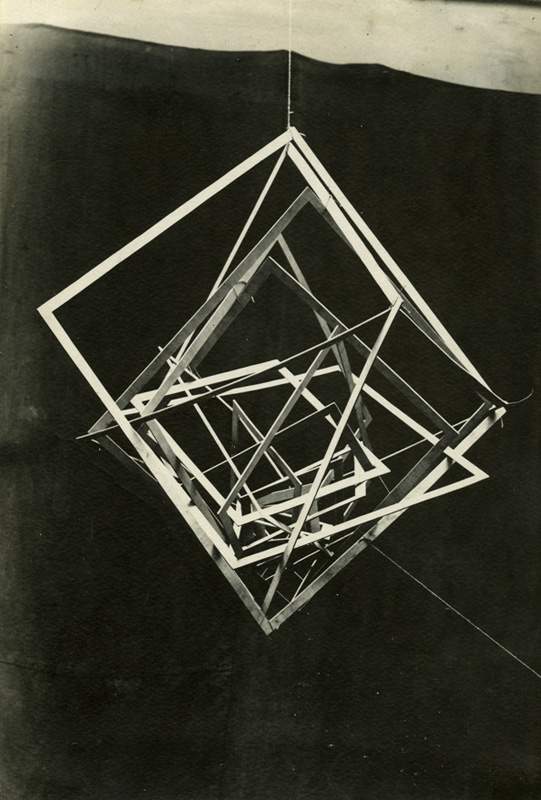THE HALL BEDROOM (2)
By:
April 12, 2023

“The Hall Bedroom” (Collier’s, March 28, 1903) is an early example of the potentials offered to fantastic fiction by the idea of an extended dimensional space. Of the author, in “Supernatural Horror in Literature,” Lovecraft would write: “Horror material of authentic force may be found in [her] work.” HiLoBooks is pleased to serialize the story for HILOBROW’s readers.
ALL INSTALLMENTS: 1 | 2 | 3 | 4 | 5 | 6 | 7.
Diet and Psychology
“It is curious what an annoyance a restriction in diet can be even to a man who has considered himself somewhat indifferent to gastronomic delights. There was to-day a pudding for dinner, which I could not taste without penalty, but which I longed for. It was only because it looked unlike any other pudding that I had ever seen, and assumed a mental and spiritual significance. It seemed to me, whimsically no doubt, as if tasting it might give me a new sensation, and consequently a new outlook. Trivial things may lead to large results: why should I not get a new outlook by means of a pudding? Life here stretches before me most monotonously, and I feel like clutching at alleviations, though paradoxically, since I have settled down with the utmost acquiescence. Still one can not immediately overcome and change radically all one’s nature. Now I look at myself critically and search for the keynote to my whole self, and my actions, I have always been conscious of a reaching out, an overweening desire for the new, the untried, for the broadness of further horizons, the seas beyond seas, the thought beyond thought. This characteristic has been the primary cause of all my misfortunes. I have the soul of an explorer, and in nine out of ten cases this leads to destruction. If I had possessed capital and sufficient push, I should have been one of the searchers after the North Pole. I have been an eager student of astronomy. I have studied botany with avidity, and have dreamed of new flora in unexplored parts of the world, and the same with animal life and geology. I longed for riches in order to discover the power and sense of possession of the rich. I longed for love in order to discover the possibilities of the emotions. I longed for all that the mind of man could conceive as desirable for man, not so much for purely selfish ends, as from an insatiable thirst for knowledge of a universal trend. But I have limitations, I do not quite understand of what nature — for what mortal ever did quite understand his own limitations, since a knowledge of them would preclude their existence? — but they have prevented my progress to any extent. Therefore behold me in my hall bedroom, settled at last into a groove of fate so deep that I have lost the sight of even my horizons. Just at present, as I write here, my horizon on the left, that is my physical horizon, is a wall covered with cheap paper. The paper is an indeterminate pattern in white and gilt. There are a few photographs of my own hung about, and on the large wall space beside the bed there is a large oil painting which belongs to my landlady. It has a massive tarnished gold frame, and, curiously enough, the painting itself is rather good. I have no idea who the artist could have been. It is of the conventional landscape type in vogue some fifty years since, the type so fondly reproduced in chromos — the winding river with the little boat occupied by a pair of lovers, the cottage nestled among trees on the right shore, the gentle slope of the hills and the church spire in the background — but still it is well done. It gives me the impression of an artist without the slightest originality of design, but much of technique. But for some inexplicable reason the picture frets me. I find myself gazing at it when I do not wish to do so. It seems to compel my attention like some intent face in the room. I shall ask Mrs. Jennings to have it removed. I will hang in its place some photographs which I have in a trunk.
RADIUM AGE PROTO-SF: “Radium Age” is Josh Glenn’s name for the nascent sf genre’s c. 1900–1935 era, a period which saw the discovery of radioactivity, i.e., the revelation that matter itself is constantly in movement — a fitting metaphor for the first decades of the 20th century, during which old scientific, religious, political, and social certainties were shattered. More info here.
SERIALIZED BY HILOBOOKS: James Parker’s Cocky the Fox | Annalee Newitz’s “The Great Oxygen Race” | Matthew Battles’s “Imago” | & many more original and reissued novels and stories.
